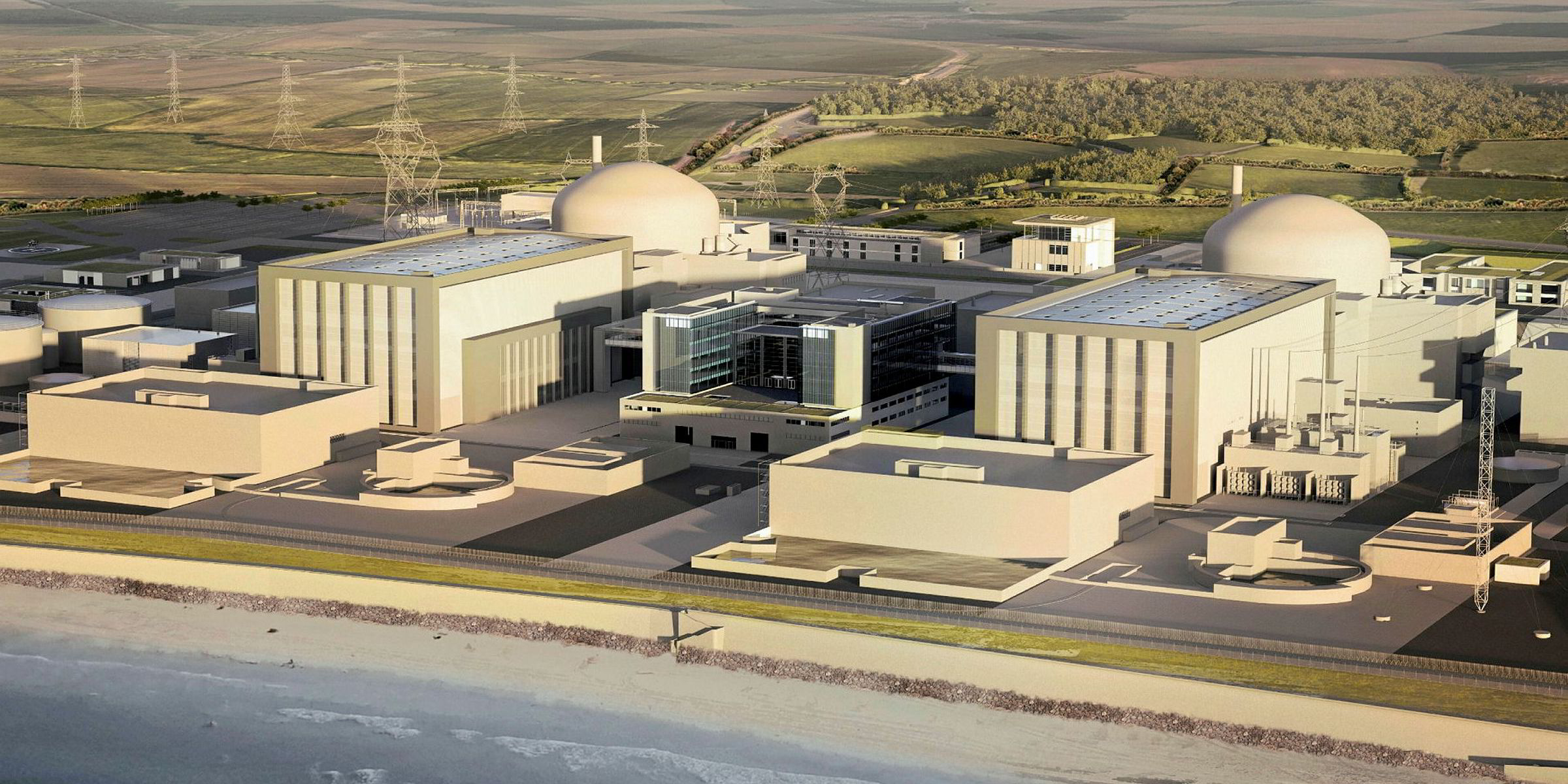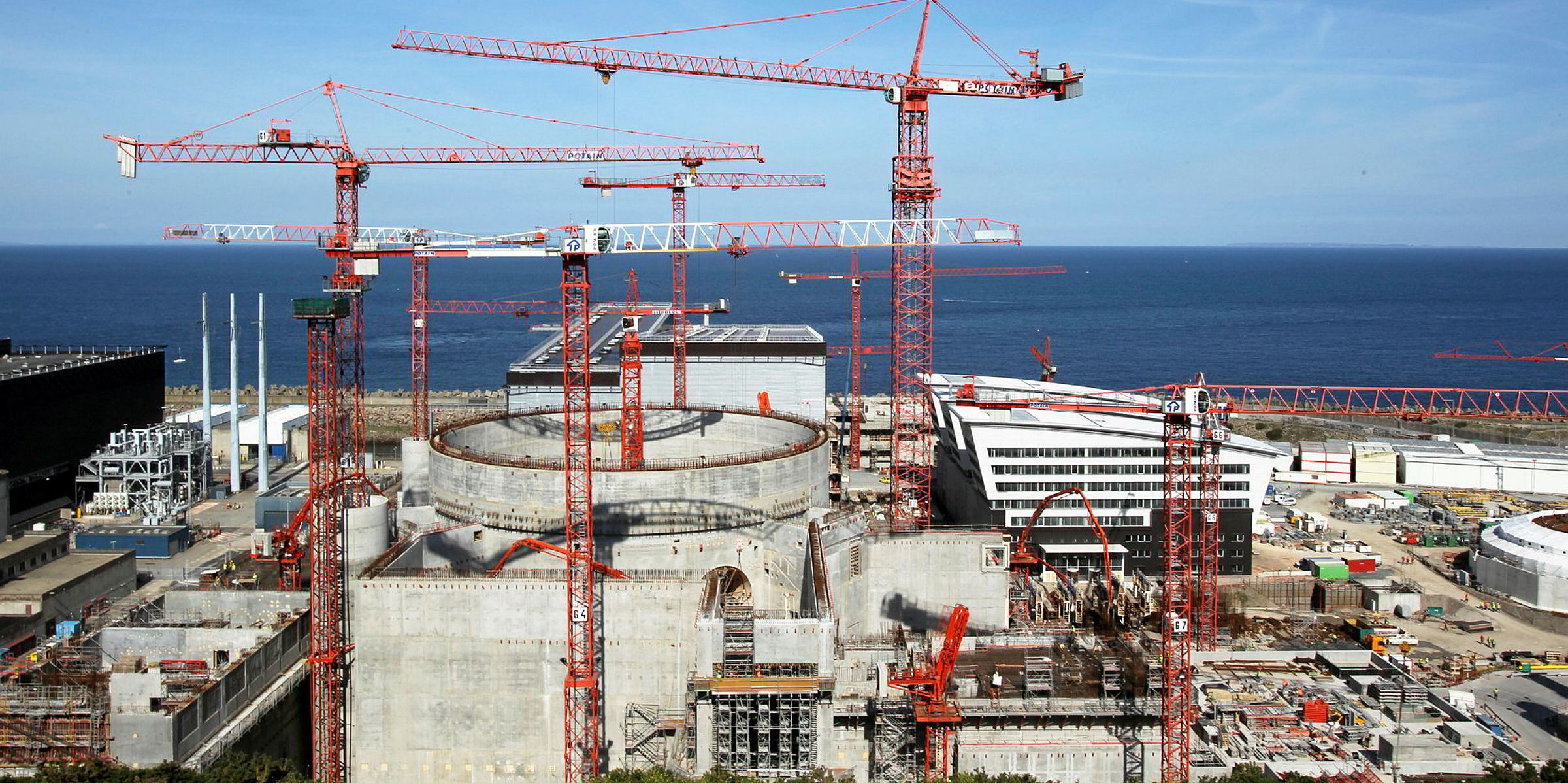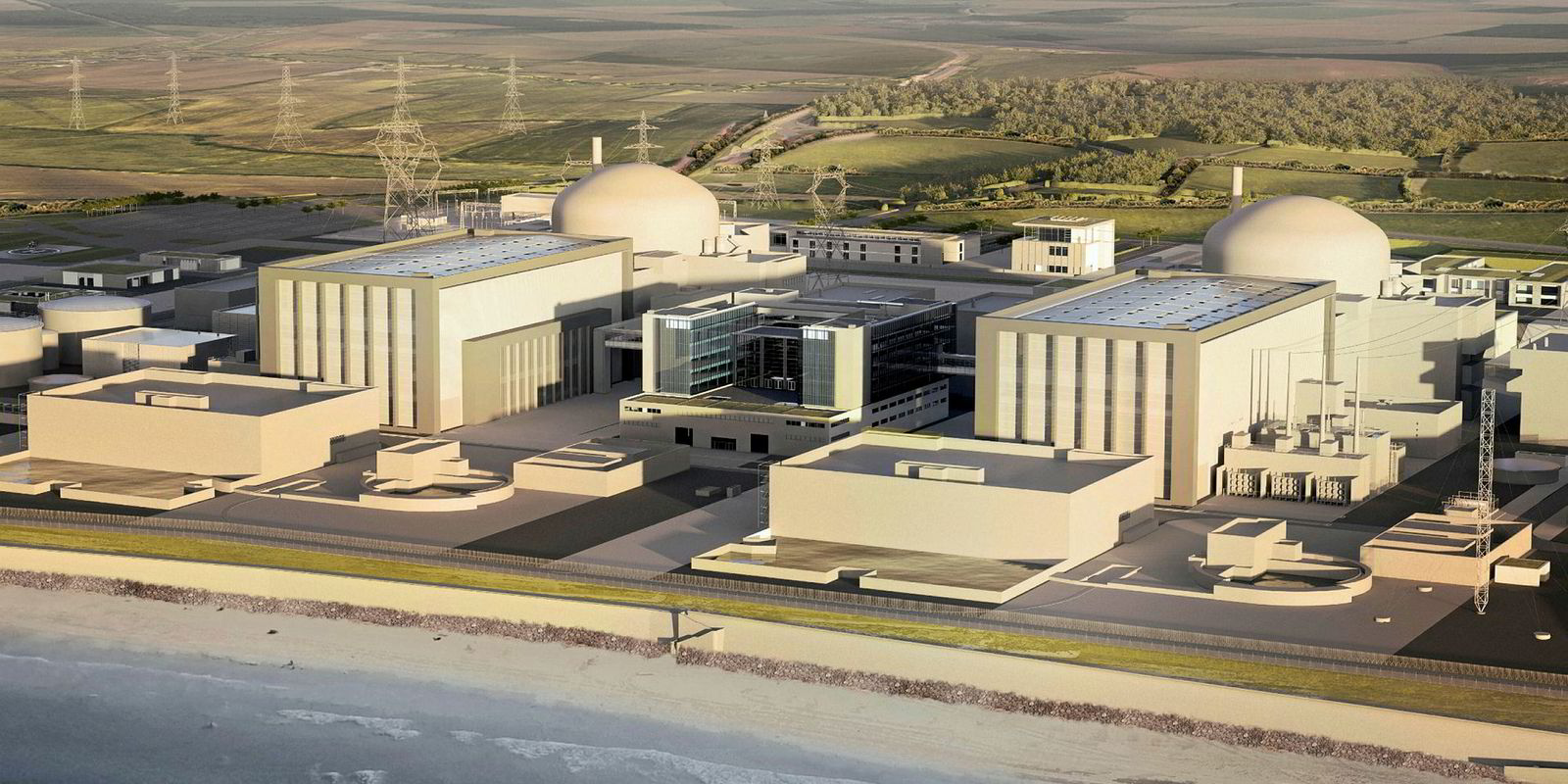UK nuclear power is on a roller coaster ride with undue commercial pressures and political influence raising big questions over its future at a time when atomic energy is being increasingly undercut by renewables, according to a new book.
Rocketing costs and delays have beset the nuclear industry. French power company EDF revealed last week that the cost of building the Hinkley Point C nuclear station in southwest England would be up to £2.9bn ($3.5bn) more than budgeted, pushing the total project cost up to as high as £22.5bn.
This is in sharp contrast to the cost of offshore wind which has plummeted by a further 30% over the last two years with a raft of 12 projects in the government’s third Contracts for Difference auction last month recording record low prices between £39.65/MWh and £41.61/MWh.
Nuclear critics point out new offshore wind now costs less than half of the £92.50/MWh (at 2012 prices) that the government has committed to pay 35 years for power from Hinkley Point C, and that wind might get even cheaper by the time the much-delayed reactors finally crank into action.
In their book 'Golden Egg or Poisoned Chalice? The Story of Nuclear Power in the UK', co-authors Tony Wooldridge and Stephen Druce reveal how unfortunate and costly decisions destroyed the UK’s ambition to become a global leader in the nuclear industry.
Wooldridge and Druce, who have both held senior roles in the nuclear industry, believe that the UK Atomic Energy Authority has been allowed to wield too much influence over policy, and that the government should have listened more to the concerns of other parts of the industry as well as objectors.
“It has been clear for some time that renewables are undercutting nuclear on cost and, unless something remarkable happens, this trend seems likely to continue. Based on current trends, renewables look set to dominate the market,” Wooldridge told Recharge.
The latest offshore wind prices confirm the trend and certainly makes the strike price for Hinkley Point C look expensive in comparison, the author says, but stresses that price is not the only aspect to be considered.
“Security of supply and diversity of generation sources are also relevant and, if we want to aim for 100% zero carbon generation, then that may not be achievable by relying on renewables alone.”
However, with the UK Conservative government’s plans for nuclear to be the backbone of a low-carbon energy system in disarray, the need for a firm policy towards the building and financing of new projects has never been greater.
In the past year, developers Hitachi and Toshiba have pulled out of building 9.4GW of planned nuclear capacity at Wylfa, Moorside and Oldbury, claiming that the prices being offered by the government were not high enough — leaving a giant hole in the country’s energy supply in the mid-2020s.
Plans for a further 7GW or so in the UK by 2030 are now looking unlikely, while 7.7GW of the country’s 8.8GW of ageing nuclear plants are due to be shut down by 2030.
Wooldridge argues that for the time being he believes nuclear should continue to be seriously considered to be part of the UK’s overall energy mix.
“In the longer run if you feel you can get renewables going strongly, then phase out nuclear. But to phase out nuclear before you get renewables well established is not necessarily a good idea.
“For me the role of nuclear is that it helps reduce our reliance on fossil fuels. Our current nuclear stations have made a very significant contribution to reducing the amount of carbon dioxide emitted.”
Wooldridge believes the government needs to take a long hard look at the future of nuclear power, and forget the fact it has started down one particular road.“The question is where should they go from now on.
“One of the lessons from the past is that it would be unwise to put all one’s eggs in the same basket.
“I am surprised by how much support small modular reactors are getting around the world, and in particular in this country. I don’t think small reactors will be able to compete with current nuclear stations, or with renewables or anything else.”
“We believe the history of UK nuclear power could have been quite different had there been less secrecy, more openness and a greater willingness to objectively consider all the relevant evidence,” said Druce. “When making future decisions [on nuclear] there should be clarity of objectives so that the reasons are transparent. If we fail to achieve this, history is likely to judge us harshly.”
*'Golden Egg or Poisioned Chalice? The Story of Nuclear Power in the UK' is published by the British Institute of Non-Destructive Testing.



